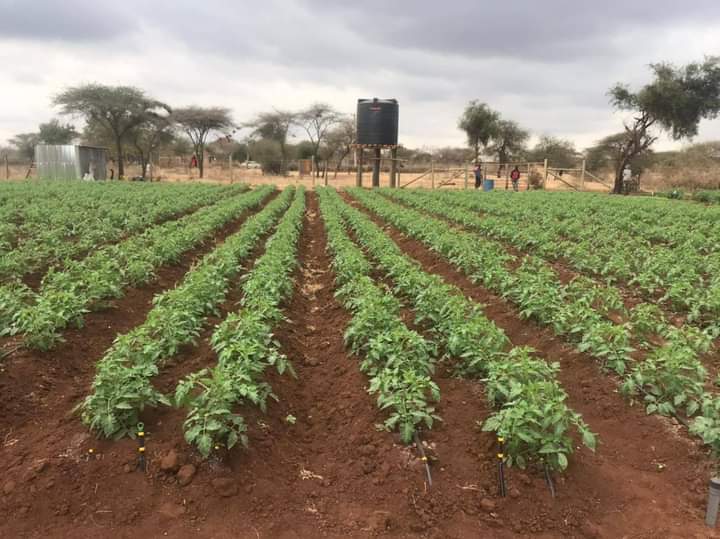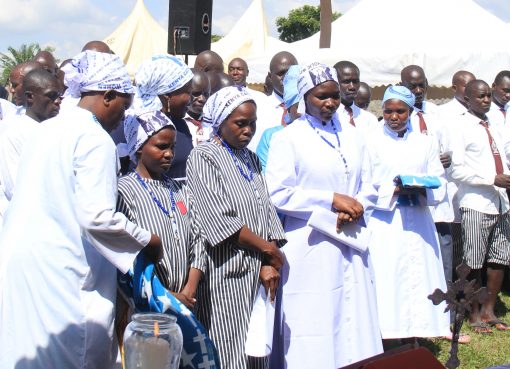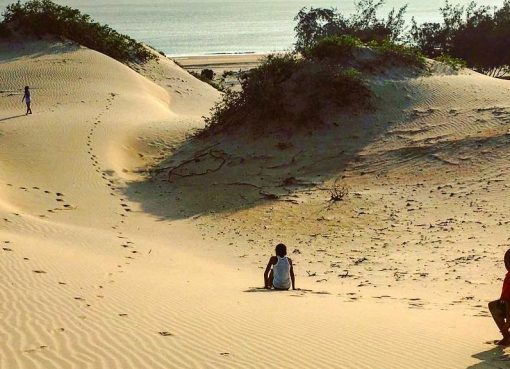Despite the ongoing drought in Kajiado County that has since wreaked havoc and stripped people of their livelihood, one farmer in Mashuuru Sub County has a different story.
James Ole Nkaisunkuro, managed to drill a borehole and used the water to plant tomatoes, kales, spinach, beans and maize.
While travelling through the Kajiado-Isara Road, one easily spots his five acre piece of land from afar as it is green with fresh produce unlike the rest of the land which have been scorched by the sun.
Kajiado County in general has been experiencing perennial water shortage and the situation has been made worse by the biting drought.
“I was forced to drill a borehole at a cost of Sh500,000. Given the climate change, there is a need for us to embrace diversification in farming,” said Mzee Nkaisunkuro as he took us around his farm.
Being from the Maasai community which has been focusing on nomadic livestock keeping as their main source of livelihood since time immemorial, one can’t help but wonder how he has managed to venture into crop farming.
“Pastoralism has got so many challenges. As in the prevailing situation, many cows have died as a result of the ongoing drought and the pastoralists are facing major losses. Since am practicing mixed farming, my cows though few in number will manage to survive as I feed them on the maize stalks and vegetables from the farm,” says Mzee Nkaisunkuro.
He says that he is lucky that he doesn’t have to buy the hay for his livestock unlike the other pastoralists who have to buy a bale of hay at Sh350 for their cows to feed on.
Not only has the farm saved his cows from starvation but it has also provided employment opportunities to five people who work in his farm and he pays them with the proceeds from the farm sales.
His farming venture has however not been a bed of roses as he, too, has to contend with his unique fair share of challenges.
“The main challenge is the purchase of petrol which is used to pump water from the borehole, especially in recent days after the president did away with the fuel subsidy making fuel very expensive. I spend a lot of money on fuel on a daily basis because some plants like tomatoes cannot withstand the high temperatures we are experiencing now without water. I’m now thinking on investing in solar powered generator as it is less costly,” observed Mzee Nkaisunkuro.
He also said that wild animals such as eland antelopes and warthogs constantly destroy his farm leaving him experiencing huge loses especially during this season where wild animals wander in villages searching for water and pastures.
Nkaisunkuro laments that it is unfortunate that the Kenya Wildlife Service does not take any action to avert the attacks though he usually informs them.
He also noted that farm pests such as tuta absoluta, spider mites, aphids and whiteflies are the main threats in farming as they destroy the crops thus one has to constantly use pesticides which are too expensive.
The issue of middle men who buy the farm produce from farmers at a throwaway price has been a big problem. He requested for the support from the government to help them deal with the middlemen.
Despite all these challenges, Mzee Nkaisunkuro says that unlike his neighbours who focus only on pastoralism, he makes a reasonable profit every month from the farm enabling him to cater for his family needs including payment of school fees.
“With the sales of vegetables like Kales and spinach, I make not less than Sh1,500 per day as they are in high demand now and the supply is low due to the drought. This is much better for me unlike before when I had to wait for a cow or sheep to mature before I can sell,” remarked Nkaisunkuro who adds that he cannot abandon farming.
He adds that the effect of the current drought would be reduced if more members of the community would invest in farming and tree planting.
By Sammy Rayiani and Diana Meneto





